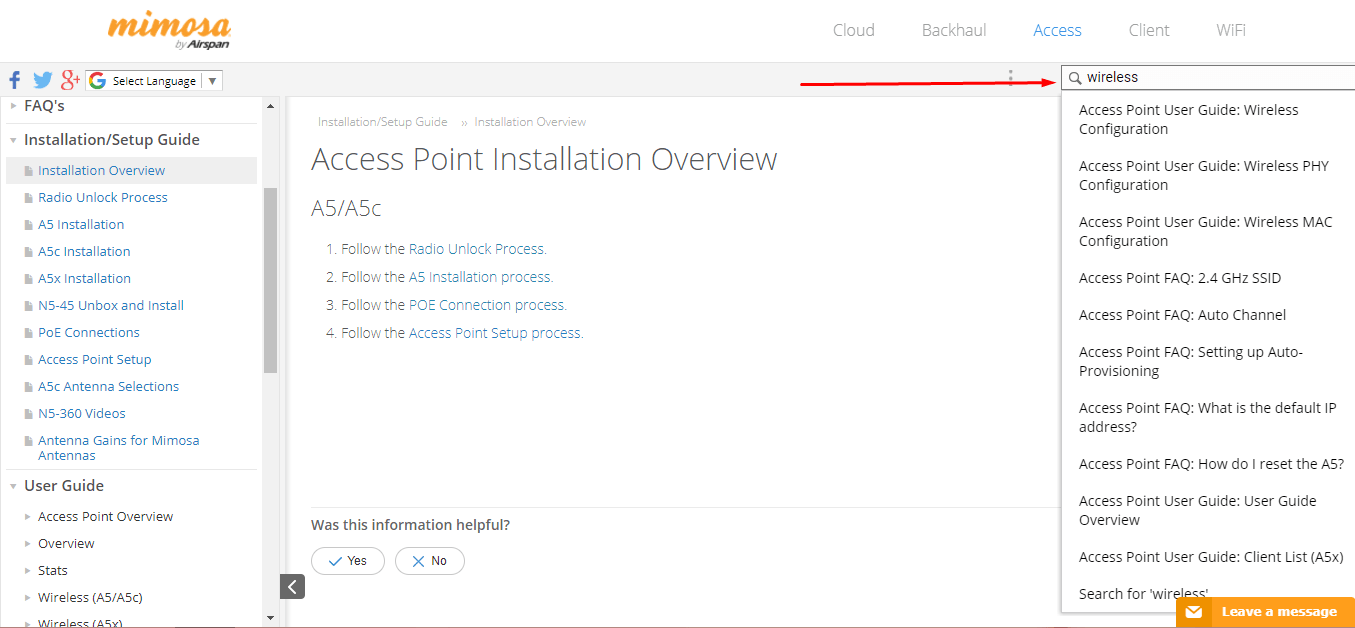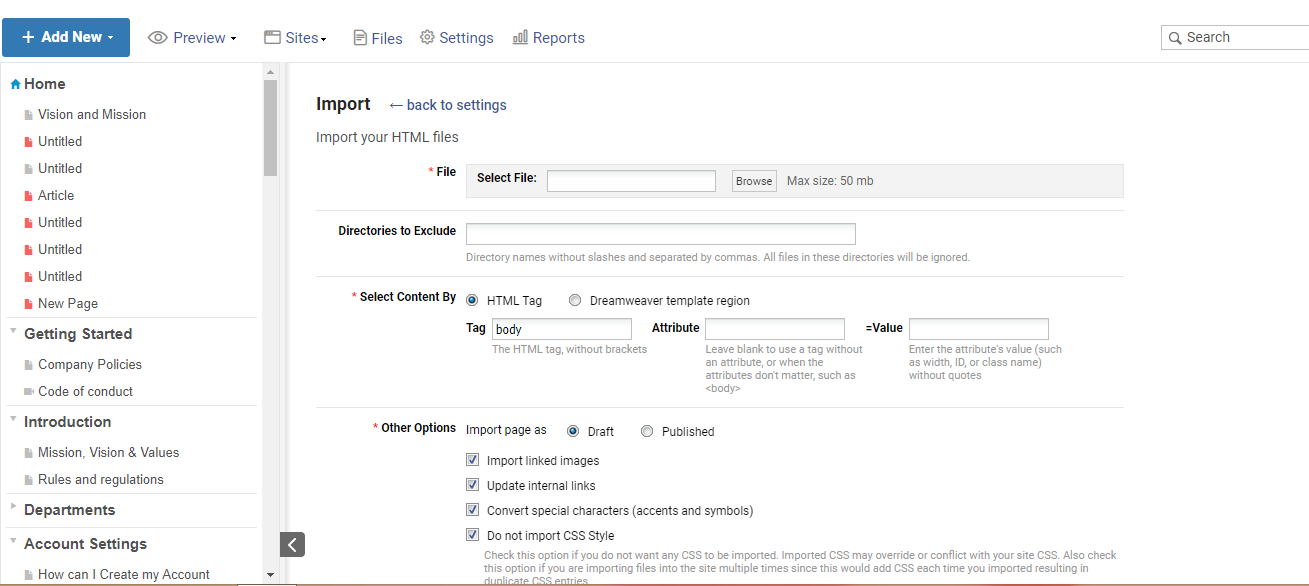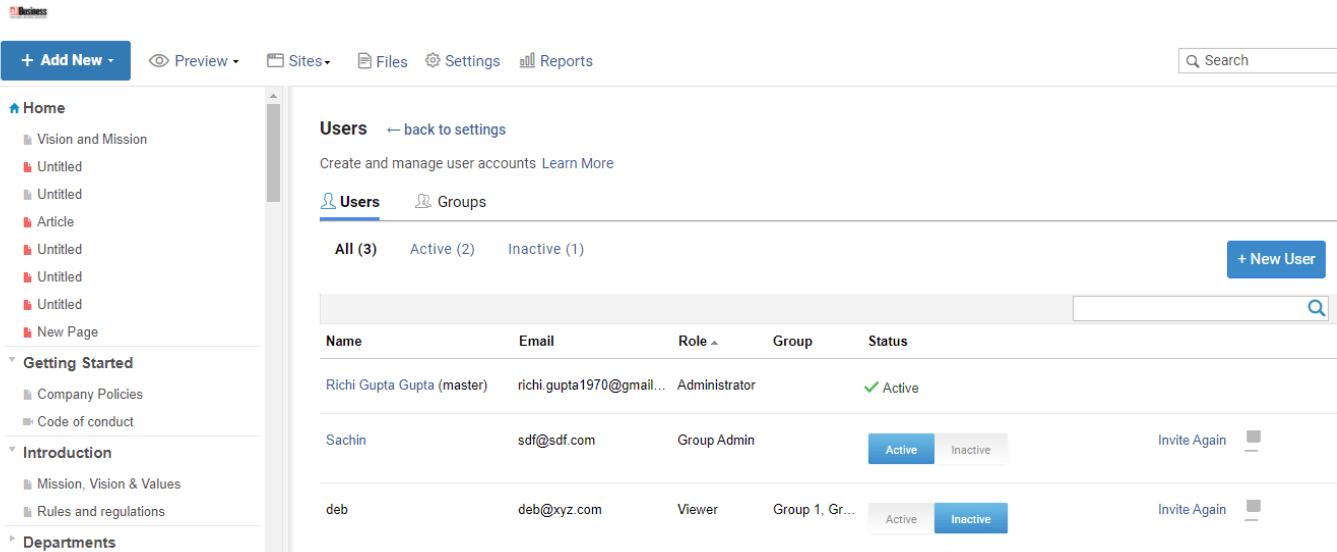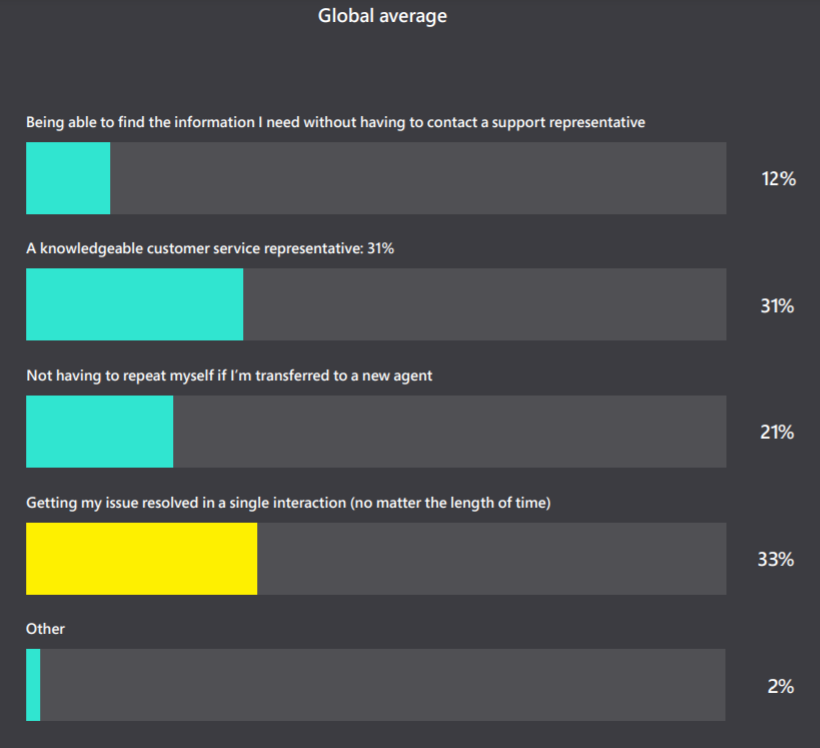It is a well-known fact that knowledge is a critical business asset.
Behind every game-changing decision, successful deals, and powerful strategies, is the knowledge you have gained over the years. It’s this knowledge that creates enduring value for your company, employees, and customers.
Knowledge is inarguably a major driving force for continued business growth and success.
With companies realizing the rising value of knowledge, there has come a dire need for a system that helps them manage and make the most of this asset.
While some feel corporate wikis are best to securely manage and share knowledge within the organization, others favor employing a knowledge base for the same. The debate around which is a better tool has been going on for quite some time, with businesses figuring out the best solution.
This blog is there to spill the beans and put a full stop to the corporate wiki vs. knowledge base debate. Read on to find out which one finally wins!
What Is a Corporate Wiki?
The word wiki originates from the Hawaiian word quick. Essentially, a wiki is a centralized knowledge-sharing platform that allows for seamless collaboration, with employees being able to edit the structure and content together.
Think of Wikipedia. It is the most easy-to-access information source on the internet today, but it has only become so through people’s contributions from all over the world. It doesn’t have an owner to oversee the contributions. Anyone from any part of the world can add, edit, and maintain the content.
An internal wiki acts as the same – a source of knowledge for the entire company, where employees can add, edit, and access content related to company policies, work processes, workflows, and more. It increases collaboration among teams, as everyone comes together under a single roof to contribute their knowledge and experiences, ensuring that all employees have access to the most updated information.
Benefits of a Corporate Wiki
Information sharing is one of the most critical aspects of any company’s operations. Employees spend a significant chunk of their time looking for information around basic things like work policies, clients, projects, and much more.
Failing to share knowledge on time can cost you exorbitantly in the form of wasted time and lost productivity. That’s why every company needs a reliable system to ensure the proper dissemination of information. A corporate wiki created by online wiki software provides employees with all the bells and whistles they need to work efficiently.
Read more: How to Create a Corporate Wiki for Your Business
Some of its major benefits include:
1. Effective Employee Onboarding
Employee onboarding is way more important than you think.
Did you know that companies lose 25% of new employees just within a year due to poor onboarding?
While you might organize training sessions for a day or two, they still need a constant companion to guide them right from day one. A corporate wiki acts as a rich information resource that your new employees can use to get familiar with your company, work policies, and their new roles and responsibilities.
Employee onboarding can be time-consuming, but a corporate wiki makes it a lot easier, provided it has all the features to deliver a smooth search experience. Since a wiki is open for everyone to use, employees can access it anytime to get the information they need to give their best at work.
Read More: Turn Employee Training Effortless With Training Documentation
2. Improved Collaboration and Communication
Every company needs a reliable and transparent knowledge-sharing system to grow. You want to ensure that collaboration is effective and proactive, and corporate wiki software can help you with that.
When team members can collaborate on company information and edit critical documents, everyone is on the same page and can grow at the same pace. A corporate wiki helps you build a knowledge-sharing culture across the organization wherein all employees share their knowledge, experiences, and insights with everyone.
In turn, this tears down departmental walls, allowing employees to work more cohesively.
3. Preserving Knowledge
Another significant benefit of a corporate wiki is its ability to harness employees’ knowledge and keep it safe for current and future use.
Suppose an employee resigns or is sacked from your organization. A major consequence here is knowledge loss. But with a corporate wiki, you don’t have to worry a bit. Employees’ knowledge and subject matter expertise is securely stored on a central platform. Regardless of who leaves, the knowledge stays with you forever.
The entire point of having a corporate wiki is to ensure that a company can effectively capture employees’ knowledge and keep it in a secure place where it can grow and be useful to other teams and your company as a whole.
Read More: Knowledge Transfer – What it is & How to Achieve it?
Drawbacks of Traditional Corporate Wikis
While a corporate wiki can easily encourage knowledge sharing and collaboration between teams, some daunting challenges can ruin the overall experience. These challenges are common with corporate wikis created using traditional tools that were popular before but are losing their relevance today.
Some of the primary challenges you might encounter when using a traditional wiki tool are:
1. Incorrect Information
Perhaps the most significant drawback of a corporate wiki is employees’ propensity to share inaccurate information that is not verified. Whether knowingly or by accident, there is always the risk of someone putting the wrong information in the wiki.
Traditional wiki tools do not provide an approval system where content is reviewed thoroughly by editors or department heads before going live. When articles are published without approval, there are bound to be factual errors and quality issues.
2. Navigation Problems
A lot of corporate wikis built using older software are a pain to navigate. As they are not intuitive, finding information becomes a tedious task. So, they end up being of little use to your employees in the long run. Poor navigation defeats the purpose of creating a wiki in the first place. Emails, phone calls, and in-person interactions prove more helpful than a wiki that is difficult to navigate.
This issue arises mainly when traditional document management systems are used to create wikis.
3. Inadequate Analytics
Traditional wikis hardly offer any useful insights into how employees are using the information, which articles they actually find helpful, which searches lead to no results, etc. With no analytics, it gets difficult to measure the effectiveness of your wiki and enhance its performance.
This means such wikis are full of knowledge gaps, stale information, and content that no longer serves the intended purpose.
Lack of a proper system to track performance metrics can turn you helpless when it comes to boosting the quality of your wiki articles.
4. No Consistency
An old-style wiki allows anyone to make changes to content as they see fit. While this allows effective collaboration, it also disrupts consistency. If anyone can write and edit, there should be someone who should review the content, right?
But wikis created with traditional tools do not provide the feature wherein you can add groups, assign them specific roles and permissions, and control what they can do in the wiki.
Remember that the information on a corporate wiki is for everyone to see. When a wiki article is changed again and again within a short span of time, it loses its credibility. Employees think twice before using such information as it can affect their work.
5. Customization Issues
Customization is a real challenge when it comes to conventional wikis. If you think just adding a logo and brand name is customization, think again. There is a lot more to it.
By default, traditional wikis are rigid, with little flexibility for interface and design improvements. You get limited formatting and styling options. Besides, it is difficult to change the wiki’s structure from scratch, including its layout and format.
This means there is little room to personalize the wiki to match your branding.
6. Inadequate Search System
Traditional wikis do not offer the best-in-class search functionality. Google has set the bar so high that no one likes to work with a below-par search system. People are used to getting information in an instant, thanks to Google’s lightning-fast speed.
Old wiki tools are not capable of providing a seamless search experience to users. Their search is slow and ineffective. There is a high possibility of getting inaccurate results every time employees search for something in the wiki.
These are the drawbacks of traditional wikis. But, if you use a modern wiki software like ProProfs Knowledge Base, you can create online wikis of compelling quality. The tool is packed with unparalleled features that deliver exceptional performance.
Watch this video to learn how ProProfs helps you build wikis, user manuals, and much more in just a few minutes.
Use Cases of a Wiki
A corporate wiki is primarily meant for internal use only. Some of its common use cases are:
1. Knowledge Sharing
Corporate wikis enable employees to share their knowledge, experiences, and observations with everyone in the organization. Thanks to knowledge sharing, you can ensure the seamless passage of information between employees and provide the right basis for collaboration on projects. In the end, you get to save a great deal of time and effort.
2. Team Collaboration
Collaboration between teams is another significant use case of corporate wikis. With this central information hub, teams can work together on articles and contribute to the content creation process. More collaborative authoring means more ideas from different teams and a wealth of information for everyone.
3. Employee Onboarding
A well-built corporate wiki helps you bring new employees up to speed. From employee policy to code of conduct and more, corporate wikis offer all the information needed to induct employees easily to your organization.
When employees come into a firm, it takes a while to adjust to the company’s work structure and understand how to conduct themselves. With easier access to the right documents, there are fewer complexities, more transparency, and higher productivity right from day one.
Select a Wiki Tool: Best 19 Wiki Software For Your Business
FREE. All Features. FOREVER!
Try our Forever FREE account with all premium features!
What is a Knowledge Base?
A knowledge base is an excellent alternative to corporate wikis. It is an online information repository that comprises how-to videos, training materials, product documentation, and much more for your employees and customers.
Unlike a wiki, a knowledge base is not limited to internal use. You can create both public and private knowledge base, depending on who your target audience is. For example, you can create a self-service knowledge base just for your customers to help them address issues independently. On the other hand, a knowledge base can also be a private knowledge source for your employees.
At its core, a knowledge base is a structured, organized, and searchable information hub that can be accessed anytime to help readers with problem-solving and enhancing their knowledge about a particular topic.
Read More: What Is a Knowledge Base: Everything You Need to Know
The Benefits of a Knowledge Base
A knowledge base is a boon for your business. It acts as a single source of truth for your customers and employees, thus reducing the time-consuming shoulder taps, emails, and calls.
Here are some of the ways a knowledge base helps your company:
1. Seamless Search Experience
With modern knowledge base software, you can enjoy more advanced document searching and linking. Compared to a traditional corporate wiki, it allows users to easily find the information that they need and make the most of it.
You get a powerful search system that works like Google. The best part is you can add tags and keywords to articles to boost their searchability. This means as soon as someone types a question or even a keyword in the search bar, relevant answers will show up in seconds.
Here is an excellent example of Mimosa’s super-fast search system:

2. Easy Authoring
Writing can be a real pain with an ineffective editor. A knowledge base software provides powerful authoring features that enable you to write and edit content with an MS Word-like editor. Its wide array of styling options ensure that the content looks good on the screen.
Not just this, you can even import existing PDF files, word docs, PPTs, and excel files to the knowledge base and fast-track the process of creating articles.

3. Useful Insights for Performance Improvement
Thanks to built-in reports, a knowledge base can show what users are searching for and viewing the most. You can get proper visibility into the keywords that do not return accurate results, article upvotes and downvotes, broken links along with their page titles, and much more.
These metrics help you measure articles’ performance, identify existing knowledge gaps and articles that need to be modified. With the tool’s robust reporting system and integration with Google Analytics, you get to evaluate content effectiveness and bring meaningful changes to the knowledge base.
Here’s a quick video to clear all your questions around how these metrics work.
4. Complete Customization Possible
A knowledge base allows you to customize your content and turn your vision into reality. Beyond the fact that you can easily edit content, the software ensures that you get full platform customization to match your taste.
Besides regular features like changing the logo and brand name, adding colors, fonts, and themes, you can make changes at the back end to alter the complete look and feel of your knowledge base. You can apply site-wide CSS to transform the presentation of your knowledge base and make it your own.
Watch this video to learn more about customization.
5. Fully Secure With Role-Specific Access Control
A knowledge base empowers you to control who has access to what content. You can assign roles to users and groups and manage their permissions to keep things streamlined. While some can take charge of writing and editing, others can be responsible for overseeing all activities. This gives space for more collaboration.
You can also use this system to set restrictions. For example, you can set conditions on an article or a specific piece of content to restrict its access to a few selected users or member groups.
For example, if you do not want editors to view an article, you can set a condition such as:

6. Integrates with your favorite tools
A powerful knowledge base integrates seamlessly with various ticketing, collaboration, and live chat tools. For example, ProProfs Knowledge Base works well with software like Google Analytics, Zendesk, Salesforce Desk, Wufoo, and the like.
Such integrations exponentially expand the potential of your knowledge base, helping you do much more with it. Unlike corporate wikis, a knowledge base allows data to be brought in from different sources to improve the information quality and the ultimate experiences delivered to your employees and customers.
Use Cases of a Knowledge Base
1. Customer Self-Service
A company knowledge base can be set up as a self-service help center. Since today’s customers prefer self-service more than any other mode of support, you can use a knowledge base to give them 24×7, on-the-spot access to anything they need. This turns your customers more independent, reduces the inflow of tickets, and takes the pressure off your agents.
2. Customer Support
Your customer support team can also benefit from a company knowledge base. They refer to it to get access to frequently asked questions, detailed guides, product demonstrations, and other information they need to deliver exceptional customer service.
For a whopping 85% of customers, knowledgeable agents and first contact resolution are some of the most important aspects of excellent customer service.

With a customer support knowledge base in place, agents can give quality and quick responses to customers without making them wait.
3. Employee Onboarding
With an internal knowledge base, your new employees can find the right information about your company policies and operations. This way, they can adapt to your work culture, learn about their roles and get up to speed in no time.
Like a corporate wiki, a knowledge base includes everything that new employees need to get familiar with your company, their new roles and responsibilities, work policies, and much more. Since trusted members of your organization have added this data, new employees can use it without flinching.
4. A Centralized Information Source for All Departments
Another significant internal use case of a knowledge base is that it serves as a centralized information hub for teams across departments. While the product team can use it to access product-specific information, client details, and more, sales staff can refer to it to get their hands on recent acquisitions, previous clients, sales clocked in the past year, and other similar details.
An internal knowledge base has everything for everyone. Besides the regular information like policies, code of conduct, work process, etc., it can also comprise critical, department-specific information.
A Knowledge Base Is a Right Choice for Your Business – Here’s Why
When it comes to the “corporate wiki vs. knowledge base” debate, a knowledge base is a clear winner. It is easier to work with and provides utility for both internal and external stakeholders.
When you consider the fact that a knowledge base tool is more advanced, feature-packed, and secure, you cannot help but use it for internal and external knowledge sharing. The best part about a knowledge base is that it integrates with almost every popular tool commonly used in business operations.
Another reason a knowledge base has an edge over a traditional wiki is that it offers a broader reach. With a knowledge base, you can provide an information repository that will be useful for your employees and customers. So, whether it is customer support you are targeting or internal knowledge management, a knowledge base fits in both cases.
 Tips
Tips
We’d love to hear your tips & suggestions on this article!
FREE. All Features. FOREVER!
Try our Forever FREE account with all premium features!

 We'd love your feedback!
We'd love your feedback! Thanks for your feedback!
Thanks for your feedback!







